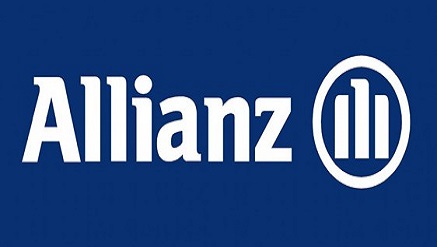The German insurance giant Allianz is venturing into the East African market as part of a strategy to have a slice of Africa’s emerging insurance market. The company has in recent times embarked on a massive acquisition spree across the continent. This comes after selling its shares in its subsidiaries in Benin, Mali, Togo and Burkina Faso to the Senegalese firm Sunu in March 2019, and then merging some of its operations in December of the same year with Sunu Centrafrique Assurances, Allianz is now taking out the chequebook again.

The move to East Africa follows a new strategic partnership with Jubilee Holdings Limited – the largest insurance group in East Africa, founded by the Aga Khan – which targets the five African countries where Jubilee Insurance currently operates. The agreement covers Jubilee’s non-life operations in Kenya, Tanzania and Uganda, and the short-term insurance segment in Burundi and Mauritius, which will be transferred to Allianz for KSh10.8bn ($100m). Jubilee Insurance will retain its life and pensions and medical insurance operations in Kenya, Tanzania and Uganda. The transaction is expected to be completed in the first quarter of 2021, following regulatory approval in the countries concerned.
In the CIMA zone, small markets and bigger capital requirements
With its base in the east, Allianz is competing for market share with another global giant, the French company Axa, positioned in North and West Africa (with subsidiaries in Morocco, Algeria, Egypt, Senegal, Côte d’Ivoire, Nigeria, Cameroon and Gabon). This choice can be explained all the more by the fact that the regulatory framework is no longer favourable to it in many Francophone countries in the west and central parts of the continent.
“This transaction is in line with the Group’s strategy, as it enables it to achieve certain return on equity and profitability objectives. In recent years, Allianz has continued to record satisfactory profitability throughout the Conférence Interafricaine des Marchés d’Assurance (CIMA) zone, including in the entities sold. However, the new CIMA regulations require a minimum share capital of 5bn CFA francs ($9m) by mid-2021,” says Nandini Wilcke, regional director for mergers, acquisitions and transformation at Allianz Africa.
He continues: “Given the size of these markets, Allianz’s projections suggest that the increase in regulatory capital would make it difficult to maintain profitability levels in line with the group’s expectations.” The company decided in 2016, the CIMA reform raises the minimum level of capital stock for insurance companies from 1bn to 3bn CFA francs within three years, then to 5bn in 2021.
This reform is expected to strengthen the sector and allow the emergence of bigger players capable of making the investments in products, technical innovations and distribution channels deemed necessary for the sector’s growth. However, the cost of this reform has raised many concerns among local players. Within the context of the Covid-19 pandemic, the giants of the sector are also worried.
However, Allianz assures that it has continued to invest in the CIMA markets, where it currently holds strong positions, particularly in Côte d’Ivoire, Senegal and Cameroon. “We have injected capital where necessary to meet new regulatory requirements, and we continue to develop our distribution networks to offer the best of Allianz’s solutions to our customers,” adds Wilcke.
The German group, which posted total revenue of €142bn ($167.5bn) in 2019, including €663m for the African continent, thus completes the refocusing of its activities on its most successful markets. And it now hopes to achieve a leading position also in the east of the continent.
In the meantime, with its foray into four new countries (Allianz Partners is already established in Mauritius), the group led by Olivier Bäte since 2015 has a footprint in twelve countries on the continent – with nine under its Allianz Africa operations.

